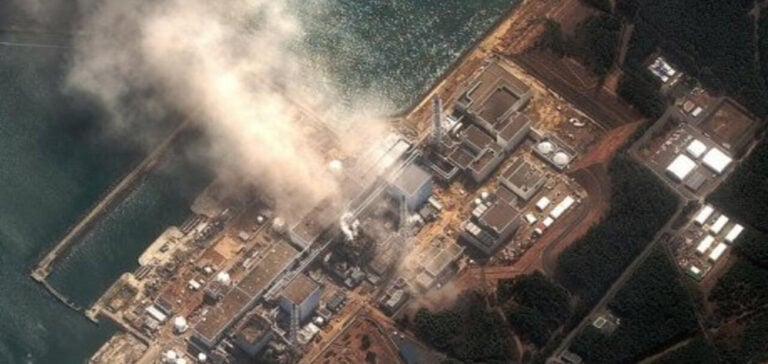The accident at the Fukushima site exposed workers to radioactive substances. This raises concerns about the safety of the nuclear power plant’s dismantling operations.
The process of dismantling the Fukushima Daiichi power plant in northeast Japan began after the disaster on March 11, 2011.
An incident on the site
Last Friday, a worrying incident occurred at the Fukushima site. Five workers were cleaning pipes in the ALPS filtration system. They are used to treat water from the damaged power plant. Unfortunately, a pipe accidentally came loose, splashing two people. Two other workers were also exposed to contamination during cleaning.
Worrying radiation levels
Radiation levels measured on the two hospitalized workers were alarmingly high, exceeding the limit considered safe. Fortunately, a doctor reassured us that the risk of radiation burns was low.
The two hospitalized workers are currently under observation in hospital. They will spend about two weeks for follow-up examinations. In addition, Tepco, the plant operator, is investigating the circumstances surrounding the accident. It will then take the necessary steps to avoid future incidents.
Discharge into the Pacific Ocean
Recently, Tepco began discharging water from cooling operations at the Fukushima nuclear power plant into the Pacific Ocean, after treatment and dilution. This phase of the release process has been validated by the International Atomic Energy Agency (IAEA), and the Japanese authorities assure us that it presents no danger to the environment or human health.
Radioactive water treatment
Water discharged into the ocean is treated using the ALPS (Advanced Liquid Treatment System), designed to eliminate radioactive substances. It should be noted that tritium, a radionuclide generally harmless at low doses, is not eliminated. As a result, the water is diluted with seawater before being discharged into the Pacific Ocean, so as not to exceed the target radioactivity limit of 1,500 Bq/L, which is 40 times lower than the Japanese standard for this type of operation.
Japan plans to discharge a total of over 1.3 million cubic meters of tritiated water from Fukushima into the sea, equivalent to 540 Olympic-size swimming pools. This process will extend over several decades, in line with the current timetable.






















